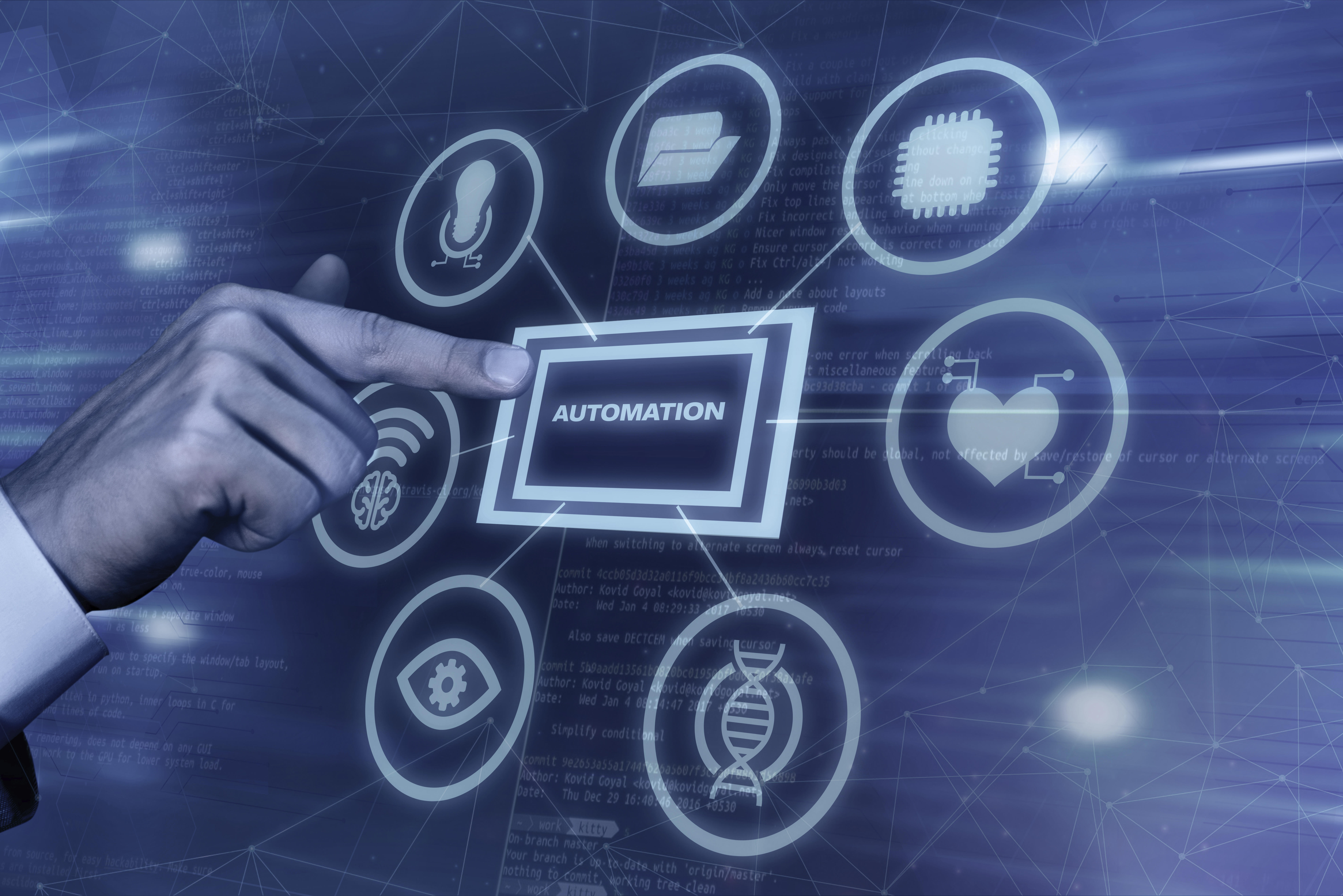The Complete Guide to Artificial Intelligence in Customer Care
Why is Customer Care So Important in the Digital Age?
Customer care has undergone a significant transformation, moving far beyond traditional call centres and email responses. In today’s fast-paced, digital-first world, customers demand real-time assistance and personalized support, expecting seamless interactions across a variety of channels. Whether it's through websites, social media platforms, chat apps, or voice assistants, consumers are looking for instant answers and a consistent experience no matter where or how they engage with a brand. As expectations rise, businesses must evolve to meet these demands, ensuring they remain competitive in an increasingly digital landscape.
However, traditional customer service methods often fall short when it comes to meeting the heightened expectations of modern customers. As businesses grow and expand globally, managing customer inquiries manually becomes a daunting task. Handling an influx of support requests from multiple regions, languages, and time zones strains resources and leads to delays and inconsistencies in service. This is where innovation, particularly artificial intelligence (AI), comes into play. AI-powered solutions, such as chatbots and virtual assistants, offer businesses the ability to scale their customer support while maintaining high-quality service, providing personalized and efficient assistance around the clock.
The Rise of AI in Business
Artificial intelligence is no longer just a buzzword — it’s a business essential. From predictive analytics in marketing to fraud detection in finance, AI is transforming the way companies operate. One of the most impactful applications? Customer service. AI technologies like chatbots, virtual agents, and automated workflows are becoming standard tools for businesses that want to stay competitive, responsive, and efficient.
Why is AI a Game-Changer for Customer Care
Implementing artificial intelligence in customer support brings several clear advantages. It dramatically reduces response times, allowing customers to receive help within seconds. It offers round-the-clock assistance, ensuring that no query goes unanswered, even outside of business hours. Additionally, it can analyse customer data to deliver more relevant, personalized responses. This leads to higher satisfaction rates, increased customer loyalty, and lower operational costs for companies.
Who Will Benefit from this Guide
This guide is designed for customer service professionals, business owners, tech adopters, and anyone interested in enhancing support systems through innovation. Whether you’re just starting to explore artificial intelligence customer care solutions or looking to optimize an existing system, this guide offers practical insights tailored to both beginners and experienced teams. Get ready to discover how AI can help you elevate your customer support and build lasting relationships in a digital world.
What Exactly Is Artificial Intelligence in Customer Care?
Artificial Intelligence (AI) refers to the ability of machines and computer programs to perform tasks that typically require human intelligence. These tasks include understanding language, recognizing patterns, learning from experience, and making decisions. In the context of customer service, AI enables systems to interact with users, process requests, and offer solutions — often without human involvement.
Common Types of AI Used in Customer Support
Several types of AI technologies are revolutionizing the customer care experience:
- Chatbots: These are automated conversational agents that handle routine customer inquiries in real time. They can answer questions, process orders, and even troubleshoot issues.
- Natural Language Processing (NLP): NLP helps machines understand and interpret human language. It allows AI systems to comprehend customer messages and respond in a way that feels natural and human-like.
- Machine Learning (ML): ML enables systems to learn from historical data and improve over time. In customer care, this helps AI tools personalize responses, predict customer needs, and route complex queries to the right support agents.
These tools work together to provide faster, smarter, and more reliable service compared to traditional methods.
AI vs. Traditional Customer Service: What’s the Difference?
Traditional customer service relies heavily on human agents, phone lines, and email support — often leading to long wait times and inconsistent experiences. In contrast, AI-powered systems offer immediate responses, operate 24/7, and maintain high levels of accuracy and consistency. They also help reduce operational costs and free up human agents to handle more complex or emotional interactions. By integrating ai for customer care, businesses can meet modern customer expectations while boosting efficiency. The shift toward automation doesn’t eliminate the human touch — it enhances it, ensuring that help is always available when customers need it.
How Does AI for Customer Care Work?
The initial step in deploying artificial intelligence in customer support involves collecting essential customer data. This data encompasses interactions, purchasing patterns, support tickets, and other relevant information. AI-driven tools leverage this data to gain insights into customer preferences, behaviours, and recurring issues. By utilizing machine learning algorithms, businesses can analyse past data to develop models that anticipate customer needs, enabling them to provide tailored support. This proactive approach helps businesses address customer concerns before they arise, ensuring more efficient and personalized service.
Automating Responses with AI Chatbots
Once the data is analysed, AI-powered chatbots take centre stage. These intelligent bots engage customers in real time, providing instant responses to frequently asked questions. With advanced natural language processing (NLP), chatbots can understand customer queries and provide relevant answers. This reduces wait times and ensures that customers get the assistance they need quickly and efficiently.
Using AI for Routing and Escalation
While chatbots handle basic inquiries, some issues require human intervention. AI plays a crucial role in routing and escalating these cases to the appropriate human agent. By analysing the complexity of the query and the customer’s history, AI systems can prioritize and route requests to the right department or specialist, ensuring a smooth handoff and faster resolution.
Feedback Loops and Continuous Learning
Artificial intelligence in customer support goes beyond simply resolving issues; it learns from each interaction. Feedback loops are integrated into AI systems, allowing them to continuously improve based on customer feedback, responses, and outcomes. Over time, the AI adapts, delivering more accurate and personalized solutions. This ongoing evolution not only boosts customer satisfaction but also enhances operational efficiency, enabling businesses to streamline their support processes while meeting the ever-growing demands of their customers.
Example of AI in Action for Customer Support
Consider a large online retail platform that utilizes artificial intelligence in customer care. Shoppers interact with an AI-driven virtual assistant to check order updates, initiate returns, or receive product suggestions. If the inquiry demands more specialized assistance, the system automatically forwards the request to a human representative, who has access to the customer's previous interactions and context.
What are the Key Tools and Technologies Behind AI for Customer Care?
Chatbots have become one of the most essential tools in artificial intelligence customer care. These AI-powered tools are designed to handle a wide range of customer inquiries instantly. Popular platforms like ChatGPT, Drift, and Intercom use advanced natural language processing (NLP) to interpret and respond to customer queries, providing real-time assistance. They can handle everything from answering FAQs to resolving technical issues, reducing the need for human agents in many cases.
Virtual Assistants vs. Live Agents
Virtual assistants and live agents play distinct but complementary roles in customer care. Virtual assistants, powered by AI, can manage a variety of tasks such as scheduling, order tracking, and answering routine queries. However, when a customer issue becomes more complex or requires empathy, a live agent steps in. AI technologies help route these queries to the right human agents, ensuring a seamless handoff and more efficient customer support.
AI-Powered CRM Systems (e.g., Salesforce, HubSpot)
Customer relationship management (CRM) systems powered by AI, like Salesforce and HubSpot, allow businesses to track and analyse customer interactions at scale. These systems use AI to predict customer behaviour, personalize communications, and automate follow-ups. By integrating with other customer care tools, AI-powered CRMs help companies provide a more seamless and consistent experience, ensuring that customer data is utilized to enhance every interaction.
Sentiment Analysis and Voice Recognition
Sentiment analysis and voice recognition technologies are game-changers for customer service. AI systems can analyse the tone of customer interactions, whether text or voice, to gauge emotions such as frustration or satisfaction. This allows businesses to prioritize urgent issues and offer more empathetic responses. Voice recognition systems also help by identifying customers and verifying their identity quickly, improving both security and efficiency.
What are the Benefits of Using AI for Customer Care?
One of the standout benefits of ai for customer care is its ability to provide round-the-clock support. AI-powered chatbots and virtual assistants are available 24/7, meaning customers can receive assistance anytime, day or night, without having to wait for office hours. This immediate availability reduces wait times significantly, allowing customers to get the help they need quickly and efficiently, especially in urgent situations.
Cost Savings and Reduced Workload for Teams
AI helps businesses save on operational costs by automating routine tasks. With AI handling basic inquiries, businesses can reduce the number of human agents required to manage customer support. This results in a more efficient use of resources and a reduction in labour costs. Additionally, AI systems free up human agents to focus on more complex and specialized tasks, reducing burnout and improving job satisfaction among customer service teams.
Personalization at Scale
AI can analyse large amounts of data and deliver personalized experiences at scale. By understanding individual customer preferences, behaviours, and previous interactions, AI can provide tailored recommendations, solutions, and responses. This level of personalization helps to foster stronger relationships with customers, making them feel valued and understood, even when interacting with automated systems.
Consistency in Service and Fewer Errors
Another key advantage of artificial intelligence in customer support is its ability to maintain consistency in service. AI systems follow predefined rules and logic, ensuring uniform responses across all customer interactions. This reduces human error and guarantees that each customer receives accurate and reliable information. Unlike human agents, who may have varying levels of expertise or mood fluctuations, AI provides consistent, high-quality service every time, fostering trust and reliability in the customer experience.
What are the Challenges of Using AI for Customer Care?
One of the major challenges of AI in customer care is its inability to replicate human empathy. While AI can efficiently handle queries and solve problems, it often lacks the emotional intelligence required to understand complex human feelings. Customers dealing with sensitive issues, like technical problems or billing disputes, may prefer to speak with a human agent who can offer understanding and empathy. AI’s responses, though accurate, may seem cold or impersonal in such situations, leading to customer dissatisfaction.
Misunderstanding Context
Another challenge with AI is its potential to misunderstand context. While AI has made great strides in natural language processing, it can still misinterpret ambiguous queries, sarcasm, or slang. This can result in irrelevant or incorrect responses, frustrating customers who may feel their needs aren’t being fully understood. For example, a customer might ask a complex question that requires deep understanding or clarification, which AI may not always be capable of providing accurately.
Data Privacy and Security Concerns
As AI tools collect and analyse large amounts of customer data, concerns around data privacy and security are heightened. Customers may be hesitant to interact with AI systems if they are unsure how their personal information is being stored or used. Ensuring that AI platforms comply with data protection regulations, such as GDPR, and offering transparent data practices is crucial to gaining customer trust and maintaining secure interactions.
When to Escalate to a Human Agent
AI systems are highly effective at addressing routine inquiries, but there are times when the complexity of an issue requires human intervention. Determining when to escalate a query to a human agent is a critical challenge. If AI fails to recognize that an issue is too complex or nuanced for automated handling, it could lead to unresolved problems and dissatisfied customers.
How Can you Start Using AI for Customer Care in Your Business?
The first step to implementing artificial intelligence in customer support is understanding your business's specific customer service needs. Start by identifying the types of inquiries your customers make most frequently and the complexity of those issues. Are they seeking quick answers to basic questions, or do they require more personalized, in-depth support? By assessing the volume and nature of customer interactions, you can determine which areas of your support process would benefit most from AI, such as handling frequently asked questions or streamlining ticket management.
Choose the Right AI Tools
Once you've identified your needs, the next step is selecting the right AI tools to address them. There are various options available, such as chatbots, AI-powered CRM systems, and virtual assistants. Consider the specific features each tool offers, such as natural language processing, sentiment analysis, and integration capabilities with your existing support platforms. Popular tools like Drift, Intercom, or Salesforce provide scalable solutions that can be tailored to your business size and customer support requirements. Take time to research and choose tools that align with your objectives.
Train Your Team and Test Your System
Before rolling out artificial intelligence in customer support, it's essential to train your customer service team on how to interact with and manage AI systems. While AI can handle many tasks, human oversight is still crucial, particularly for complex queries. Conduct training sessions to ensure your team is comfortable working alongside AI tools and understands when to step in. Additionally, perform tests to assess the system’s performance and accuracy, ensuring it meets your customers' expectations and delivers reliable support.
Monitor, Improve, and Scale
Once your AI system is in place, it’s crucial to continuously monitor its performance. Keep an eye on key metrics such as customer satisfaction, response time, and issue resolution rates. Use this data to make improvements and refine the system over time. AI tools learn from every interaction, so the more data they gather, the more efficient and accurate they become. As your business grows, you can scale your AI systems to handle higher volumes of customer inquiries without sacrificing service quality.
What is the Learning Path for AI Courses for Customer Care at LAI?
If you're just starting with artificial intelligence in customer support, LAI offers a structured learning path to guide you from the basics to advanced concepts. Beginners can begin with foundational courses that cover the essentials of AI and customer service. These courses introduce key AI technologies like chatbots and virtual assistants, providing a solid foundation for more specialized learning. As you progress, you can move on to intermediate and advanced courses focusing on more complex topics such as AI integration with CRM systems and advanced natural language processing (NLP) techniques. The comprehensive learning path ensures you build expertise step-by-step, making it accessible for learners at any stage of their career.
Skills to Look for: NLP, Chatbot Development, AI Ethics
As you advance through the artificial intelligence in customer support learning path, there are specific skills to focus on. Natural language processing (NLP) is a crucial skill, enabling AI systems to understand and process human language effectively. Chatbot development is another key area, as creating intelligent bots capable of interacting with customers is central to AI in customer care. Additionally, understanding AI ethics is vital. Learning about ethical AI practices ensures that you can implement solutions that respect customer privacy, avoid bias, and maintain trust. LAI's courses equip you with these essential skills, preparing you for the future of customer service.
How LAI Courses Help You Stay Updated and Future-Ready
The world of artificial intelligence is evolving rapidly, and staying updated is crucial to maintaining a competitive edge. LAI courses are designed with this in mind, offering regular updates to keep you informed about the latest AI trends, tools, and best practices in customer care. By engaging with these courses, you’ll gain insights into emerging technologies, ensuring you're always ready to adopt the latest innovations in artificial intelligence customer care. Whether it's new developments in chatbot capabilities or shifts in AI ethics, LAI prepares you to be future-ready and adapt to the changing landscape of customer care.
Conclusion
In this guide, we've seen how artificial intelligence customer care is reshaping businesses by enhancing efficiency, reducing costs, and delivering personalized experiences. AI tools, such as chatbots and automated systems, are vital for streamlining support, but human agents remain essential for complex interactions. Moving forward, the role of ai for customer care will continue to grow, requiring businesses to balance automation with human empathy. Continuous learning is crucial for staying updated with AI advancements. By investing in AI education, like LAI’s courses, businesses and professionals can better adapt to the evolving customer care landscape and maintain a competitive edge.








